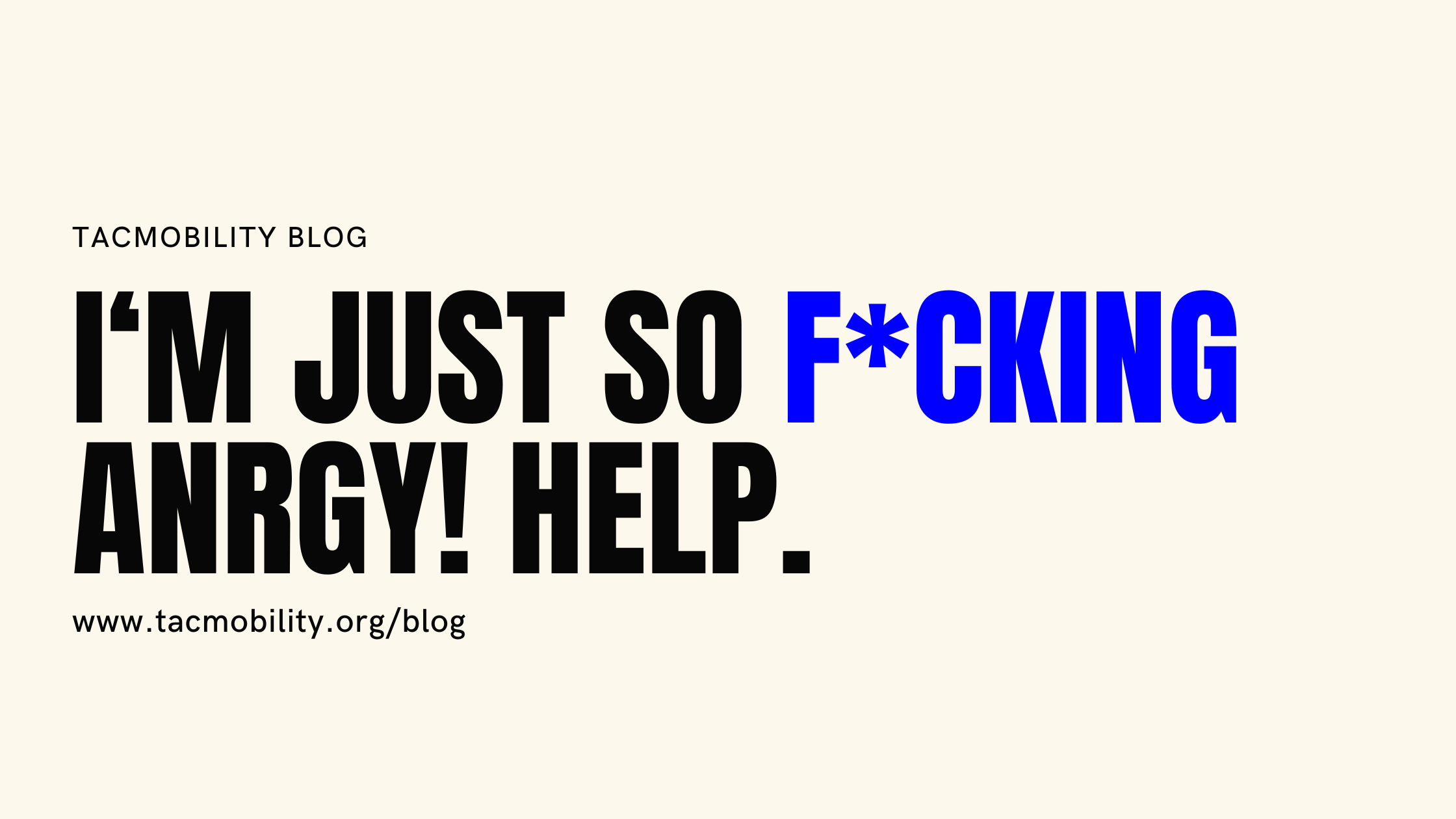I’m Just So F*cking Angry! Help.
Most emotions including anger last 90 seconds. There’s a cascade of chemicals that happen in the body for about 90 seconds and after that it’s our thoughts that take over.
For some people they notice their anger reaction is a quick spike and for others it spikes and then maintains for a while. To help get some control over the anger outbursts, we first need to understand how that reaction is helping us.
Now, you might be thinking, “Uh, it’s not helping that’s why I’m reading this stupid blog.”
HOWEVER, while it might not seem logical, this emotional reaction serves some purpose. Maybe it gives you back power that you feel like you’ve lost, maybe when you were younger it helped to take the heat off a sibling or protected one parent from another. The point is - there are a ton of reasons why we develop these responses.
When you realize your emotional brain is trying to help you, you look at it differently and with a little more compassion. Sometimes it’s easy to figure out and sometimes you might need some assistance from a professional but it’s helpful to figure it out regardless.
“Cool, what do I do once I have more compassion?”
Next, we regulate, regulate, regulate. When do we self-regulate though? When we’re in the throws of the outburst? Nope, it’s harder to access. Instead, regulate when you’re CALM.
Self-regulating when you are calm helps build the pathways in your brain so you can access those skills when the anger strikes again. This takes a lot of practice so don’t get discouraged if you don’t see immediate results. In the first responder world, we love results - and quick - so prepare yourself for the long game.
Some ways to combat your reaction:
· Remind yourself regularly that your body response is 90 seconds and after that you are choosing to stay angry. This helps you gain some control over the feeling.
· Start studying your reactions, what do you notice? Do you get hot, do your fists clench? It might seem like you go 0 to 100 but there are almost always indicators prior to the moment you notice them. Then, intervene immediately with the opposite of what happens (ex: if you get hot…go stick your head in the freezer).
· Journal about your responses and how you want to change them - this provides a timeline to look back at your progress and gives you hope that things can change when you stick with it.
· Practice regulation skills throughout the day, these are a few good ones:
o Physiological sigh
o Pushing hands against a wall as hard as you can
o Twist a towel in your hands as tightly as possible
o Put some music on and start moving around
o Pet an animal and watch their breathing for a bit
o Sour candy (this works for panic attacks and could also help you snap out of it quicker)
· Instead of screaming swear words, try inputting a different word to drum up some humor. It’s a lot harder to take yourself seriously when you’re screaming “scuttle butt”.
Finally, make sure there isn’t anything else going on. Medical issues, untreated trauma, etc. can all impact our ability to manage our emotional reactions so seek professional help if you need it or if you have partners/friends/family saying something has changed about you.
If you’re looking for one-on-one coaching services, you may be interested in Empowering Our Protectors – a video session with me to will help you develop enhanced coping skills, improve your relationships, and create long term healthy habits. Click here for more information.
Mel is a licensed associate therapist that specializes in first responders and is the wife of a trooper. She is passionate about bringing good, practical wellness solutions to first responders.
#lawenforcement #police #stress #work #burnout #tacmobility #mentalhealth #wellness #recovery #anxiety #anxious #stressreduction #policelife #copsofinstagram #policeofficers #lawenforcementofficer #firstresponder #cops #coplife #policelife #policeofficer

















